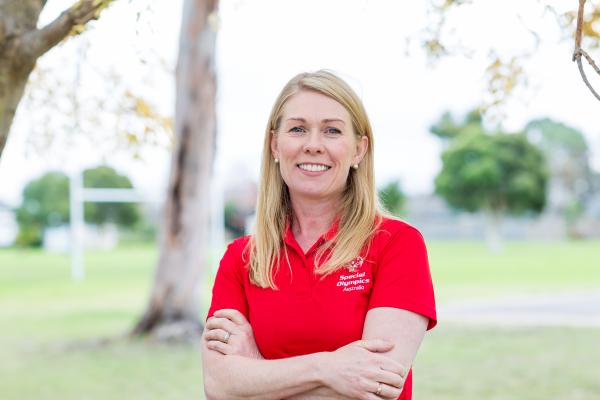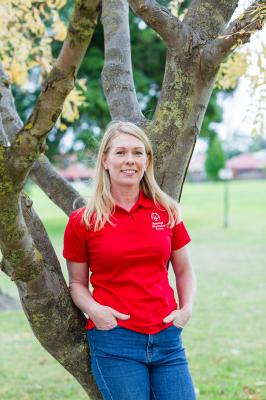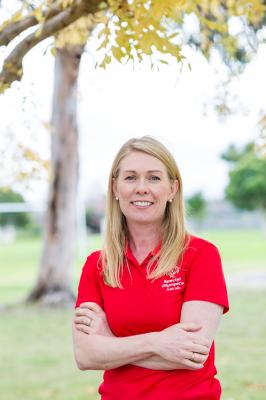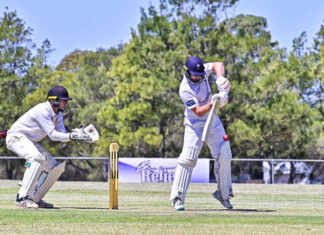Sarah Wheadon made the finals of the Victorian Sport Awards recently for her work developing an autism inclusion webinar series. She speaks to Luke Voogt about what drives her to make a difference.
Tell us about you…
I live in Geelong West with my husband Lukas and we have two young kids. I grew up in Belmont and lived there until I was 18. I moved to Melbourne to study a bachelor of applied science – sports coaching and administration.
My first job out of uni was in marketing at Essendon Football Club, and then I worked as a cabin manager for Qantas. I felt like there was more I could offer, so I did my bachelor of education. I taught PE, English as a second language, outdoor education and health across several schools in Melbourne.
I moved back to Geelong in 2018 to be closer to the Surf Coast and provide more of a community life for our children. I like to run around the Barwon River and do CrossFit.
How did you come to work for Special Olympics Australia?
After teaching I worked for the federal government to get more primary school aged kids into sport.
After moving I wanted to do the best by my family by not having to commute, and I had done a bit of work in disability sports and really enjoyed it. Through my colleagues I got some work at Special Olympic Australia in October 2019 working on projects to increase the participation of people with disabilities in sport. Part of that was developing the Autism Inclusion in Sport, Recreation and Physical Education webinar series.
The series featured people with autism, coaches, advocacy groups, teachers, researches and other people working in the field. It was aimed at increasing the toolkit of teachers, volunteers and coaches to support people with autism. The success of that led to permanent employment with Special Olympics Australia. Initially, I didn’t know much at all about autism but I’ve learnt a huge amount through the series engaging with people with autism and those working in that field.
I was surprised to make the finals of the Victorian Sport Awards but at the same time proud industry colleagues had realised the value of this work. Special Olympics is more than just a sport – it’s a bit like a family for people with disabilities.
What do you like to do locally?
We like to get down to Torquay and Ocean Grove for a swim and surf, or visit Sparrow Park in Geelong West.
How are you coping with COVID-19?
With COVID all Special Olympics activities stopped because people with disabilities are especially vulnerable. COVID has hit the entire organisation really hard. There’s a lot of athletes who haven’t returned yet and some volunteers may not be able to.
The webinar series was actually meant to be face-to-face workshops until COVID hit. That was the silver lining – we were able to reach so many more people via the online platform.
I was also juggling home-schooling – like everyone – so that was a challenge, but you don’t have any other choice do you? During COVID both my kids learned to ride without training wheels.
For more information about volunteering for or participating in Special Olympics Australia locally, visit: specialolympics.com.au/index.php/barwon











